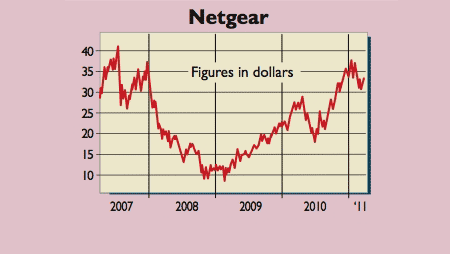
Apple, Google and Microsoft are hugely successful technology firms – but they share one failure in common. Each has had its fingers burned trying to make a success of internet TV – television programming distributed over the internet, rather than the airwaves. As Turner Investments’ Daniel Hirsch puts it: “Internet TV was supposedly destined to be the next big thing in the technology sector. Instead, it’s been more like the next underwhelming thing.”
So why hasn’t internet TV been a big money-spinner? Technology has been a hindrance in the past. Problems with connection speeds and cumbersome early internet-ready TVs made online television a poor substitute for the real thing. Yet these problems have largely been eradicated. Fast, affordable broadband is widely available in most developed countries, while internet TV sets have been upgraded.
But piping internet TV to living rooms or mobile phones is only half the battle. To compete with a conventional box, online viewing must have the same range and quality of programmes. Indeed, one of the theoretical (for now) advantages of internet TV is that viewers will be able to access any programme online, as opposed to simply having to watch whatever is being broadcast. Yet the oligarchy of largely US multimedia corporations that controls much mainstream film and TV content has been reluctant to put video online. Small wonder, says The Economist. “They merely have to look at the music business, or the newspaper business, to see the dire consequences of losing control of their content online.” These media giants don’t want to “forfeit the huge revenue streams from traditional cable and satellite distributors… in exchange for the current relatively paltry revenue streams from internet TV”, says Hirsch.
This is the most significant barrier to the growth of internet TV. New media, such as Google and Apple, who are used to getting their own way, is being bossed around by ‘old media’. For example, Google has a deal with Turner Networks, but Disney, Viacom, CBS and NBC have boycotted its platform. Similarly, Apple can only offer a limited selection of shows from Fox and Disney.
Content producers are fighting back with their own online offerings. As a result of this stalemate, online TV has not yet grown as expected. The lack of content means most people use the internet to watch programmes they have missed, rather than live shows. What’s more, the majority of viewers use free sites. Around 170 million US internet users a month watch video online, but they spend far less time and generate less advertising and subscription revenue for firms than traditional TV viewers.
However, this looks set to change. As smartphones and other gadgets introduce more people to online TV, advertising and subscription revenues will grow, which will tempt media corporations to put more content online. At present, 10% of US households have internet-connected TVs, but that’s expected to more than triple by 2015. Tablet computers, like the iPad, are also doing their bit to create a mass market for online TV. There are around 12 billion devices capable of showing online video now. Communication specialist Cisco reckons that will hit 22 billion by 2020.
Another growth factor is that the young section of the population who watch most online TV is growing. Online TV is also popular in emerging markets. The New York Times estimates that 300 million Chinese watch online videos every month. See the box below for how to profit.
The best bet in the sector
It is difficult to see how the stalemate between new and old media will play out. But regardless of who wins, internet TV will continue to grow. Indeed, analysts expect that by 2014, 90% of internet traffic will be video content. That’s a big opportunity for companies that help bring online video to phones and TV sets.
Netgear (Nasdaq: NTGR) is a leading producer of the high-speed routers required to stream and download videos. It also sells adapters that allow people to hook up players, such as console, TVs and Blu-ray, to the internet, and storage devices that record online content. It has been operating since 1996 and has built up a network of resellers – its products are available in more than 60,000 shops worldwide. Its focus is the US and Europe, where it has a 32% market share, but it’s also expanding into emerging markets.
On a forward p/e of 12.9, Netgear is cheaper than many of its rivals. It is also trading at a discount to a four-year trailing p/e of 24, so now looks a good time to buy. However, it is worth remembering that internet TV is developing rapidly and companies such as Netgear are always at risk from a new, more competitive technology emerging. And while internet TV seems certain to grow, it could also be a long, bumpy ride for investors.